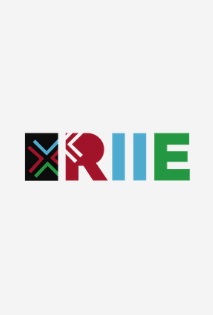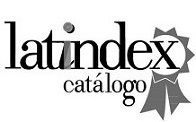Selective process of the licenciatura intercultural indígena -Teko Arandu: evaluating the differentiated access to a specific course for the guarani and kaiowá in the Federal University of Grande Dourados – UFGD
DOI:
https://doi.org/10.30972/riie.083667Keywords:
Licenciatura Intercultural Indígena, Teko Arandu, Selective Process, Guarani, Kaiowá, Linguistic PoliciesAbstract
In this article we present the Selective Process of the Licenciatura Intercultural Indígena - PSLIN, highlighting the policies of valorization and strengthening of the candidates’ mother tongue, considering the evaluation of oral competences (speaking and understanding) and writing competences (reading and writing) which must be demonstrated during the evaluation sections (Martins e Sales, 2012). The objective of the text is also to highlight the uniqueness of this selection model in Undergraduate Intercultural Indigenous in Brazil to also contribute to the reflections on the entry of Indians in specific courses. This analysis is done from the authors' experience as teachers of this degree and from the documents that make up the PSLIN, such as publicity material, announcement and the evaluation criteria.Concerning the access of indigenous students in that Licenciatura, the candidates are submitted to a series of evaluations divided into four modalities.An objective examination of candidates’ abilities in different areas of knowledge, writing in Portuguese language, an essay in order to evaluate the writing skills in Portuguese as well as in Guarani; and an oral examination in Guarani in order to identify the proficiency level of each candidate. In our view, the university has the responsibility to contribute to the process of valorization of the Kaiowá and Guarani languages (speaking, reading and writing), since even though the language has become an object of evaluation, it has not still achieved sufficient prestige in other contexts (Martins e Knapp, 2015). However, some challenges related to the maintenance and quality of this process are considered here: popularization of the process, inscription, elaboration and application of tests, evaluation of oral competence, linguistic variation, announcement of results, and registration. In view of this, we proceed with a critical reflection about the differentiated access of Guarani and Kaiowá candidates in a certain course of the Federal University of Grande Dourados - UFGD.
Downloads
Downloads
Published
How to Cite
Issue
Section
License
Aquellos autores/as que tengan publicaciones con esta revista, aceptan los términos siguientes:
- Los autores/as conservarán sus derechos de autor y garantizarán a la revista el derecho de primera publicación de su obra, el cuál estará simultáneamente sujeto a la Licencia de reconocimiento de Creative Commons que permite a terceros compartir la obra siempre que se indique su autor y su primera publicación esta revista.
- Los autores/as podrán adoptar otros acuerdos de licencia no exclusiva de distribución de la versión de la obra publicada (p. ej.: depositarla en un archivo telemático institucional o publicarla en un volumen monográfico) siempre que se indique la publicación inicial en esta revista.
- Se permite y recomienda a los autores/as difundir su obra a través de Internet (p. ej.: en archivos telemáticos institucionales o en su página web) antes y durante el proceso de envío, lo cual puede producir intercambios interesantes y aumentar las citas de la obra publicada. (Véase El efecto del acceso abierto).






.jpg)




